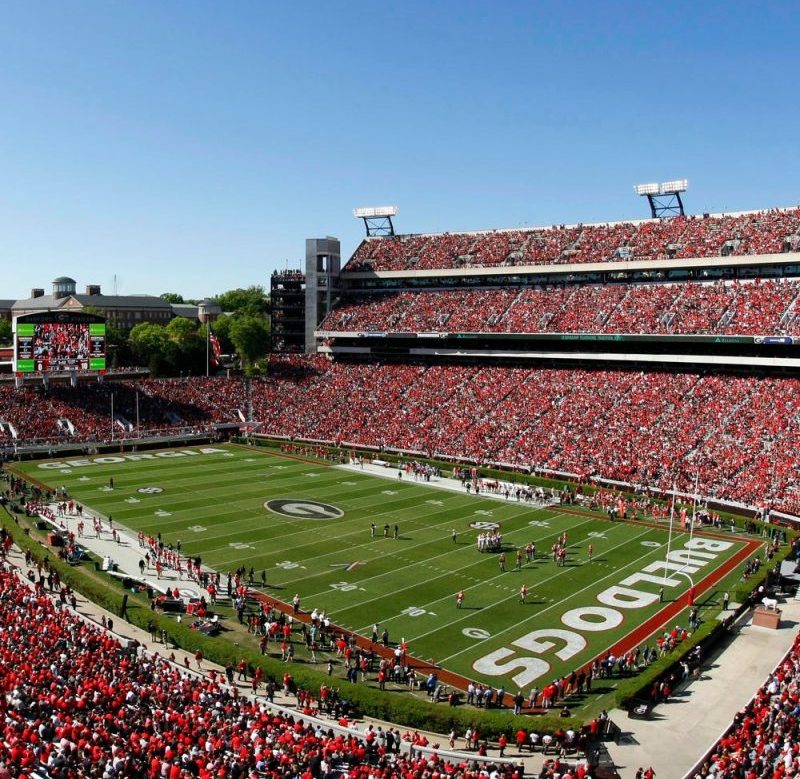College football has spent years studying ways to cut into the length of games, more recently reframing this quest as a matter of student-athlete health and safety — that trimming the length of games would also limit the number of plays, or ‘exposures,’ an athlete would face per game or over the course of an entire season.
This has become an increasingly important topic of conversation given future changes to the format of the College Football Playoff, which will expand in 2024 and could force one or more teams to play as many as 16 or 17 games in a given season.
Rule changes proposed Friday represent the largest strides taken to date in terms of managing overall game time, including one proposal that could dramatically alter the way college football is played and bring gameplay more in line with the NFL model.
The changes were offered by the NCAA Football Rules Committee, which is co-chaired by Georgia coach Kirby Smart. Next, these proposals will be forwarded to the NCAA Playing Rules Oversight Panel, which will meet on April 20.
These proposals represent ‘a small step intended to reduce the overall game time and will give us some time to review the impact of the change,’ Smart said.
Running the clock after first down
Gameplay in college and the NFL could always be distinguished by one crucial difference: Clocks in NFL games would continue to run after first downs, while clocks on the college level would stop while referees reset the chains and spotted the ball to begin a new set of downs.
Under the rules committee’s proposal, the game clock will continue to run upon a first down with the exception of the final two minutes of the first and second half, when time will stop until the officiating crew spots the ball and restarts the clock.
The Tampa Bay Buccaneers led the NFL last season with 68.8 plays per game, a number that would have tied for 85th in the Football Bowl Subdivision. Twenty-four FBS teams averaged at least 75 plays per game in 2022.
And more plays has equaled longer college games. In real time, the average FBS game length last season was three hours and 27 minutes, up almost ten minutes from the average game time during the 2017 season.
The rules committee expects the change to eliminate seven or eight plays per game and trim overall game length by roughly seven minutes, said Steve Shaw, the national coordinator of officials for the NCAA.
‘Over a season, if you play 12 games, you can do the math on that,’ Shaw said. ‘You may not notice in a game. Over a season, it may make a difference.’
How the clock rule could change college football
While the rule change is expected to ‘modestly reduce the number of plays in the game,’ according to an NCAA statement, the impact could be drastically more profound.
The offensive revolution that has gripped college football in the past decade-plus is rooted in the concepts of speed and tempo — maximizing the clock to run as many plays as possible in as short a time as possible.
Running the clock after first downs will immediately lessen the number of plays in a given game, though the by-the-numbers impact won’t be proven until the first few weeks of the 2023 season.
But even a slightly decreased number of snaps per game carries the potential of altering offensive philosophies and at least partially shifting the balance of power back toward defenses.
Timeout and penalty adjustments
The committee proposed another two changes designed to clean up overall game flow.
In the first, teams would be barred from calling consecutive timeouts. This primarily occurs before potential field goals, as coaches call successive timeouts to ice the kicker.
In the second, penalties that occur at the ends of the first and third quarters would carry over and be enforced on the opening snap of the second and fourth quarters, respectively. Under the current rules, penalties occurring at the end of the first and third were played as part of an untimed down.
That rule won’t change on penalties that take place on the final play of either half. As under current rules, those plays would then immediately occur as an untimed down.

